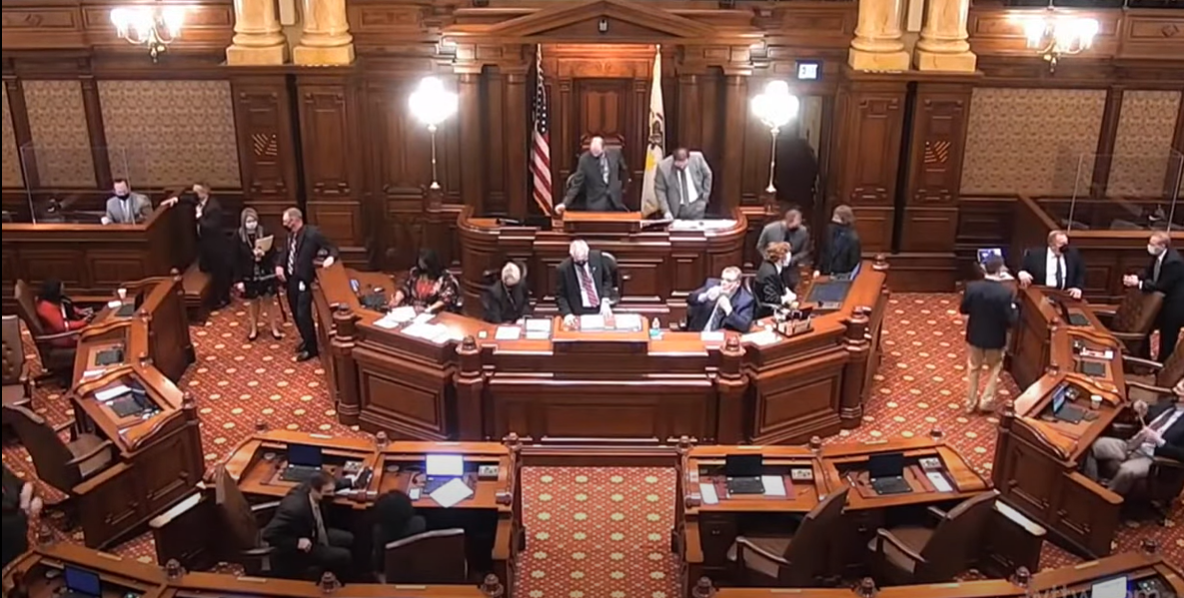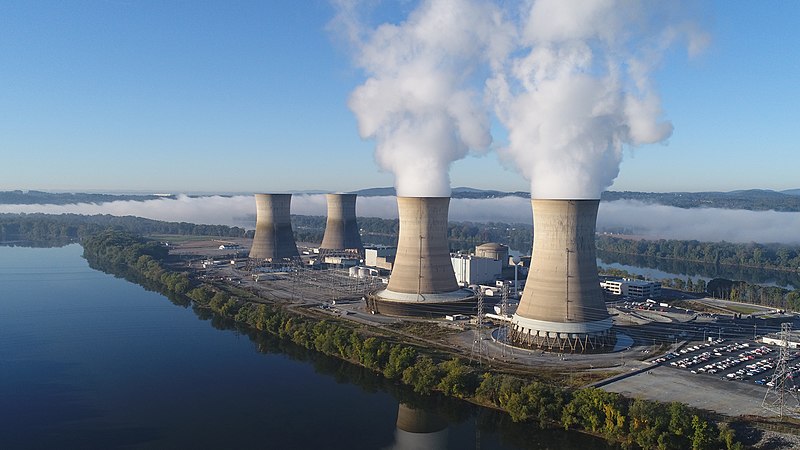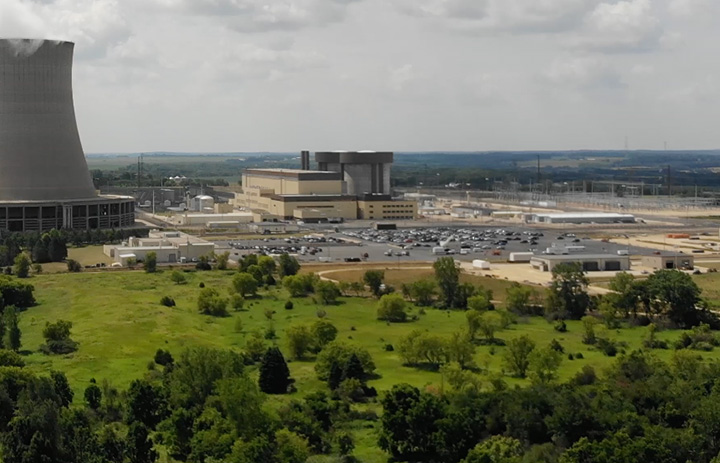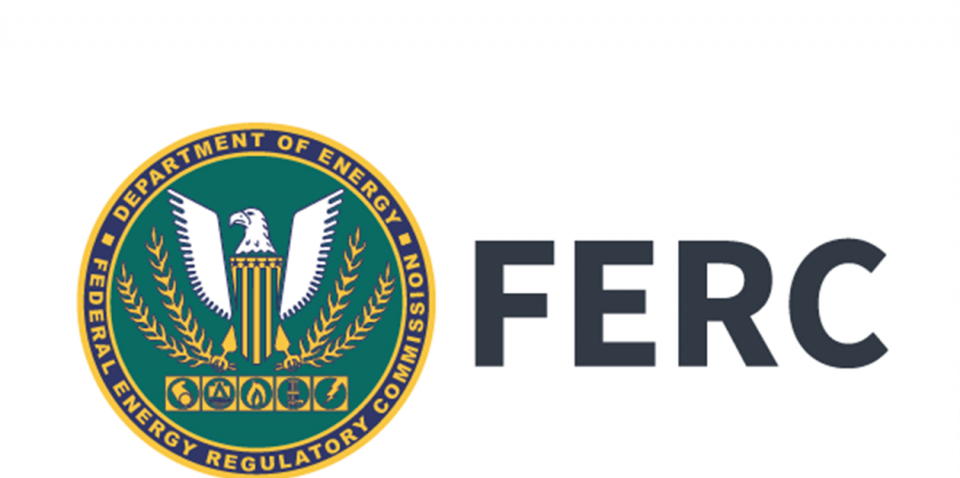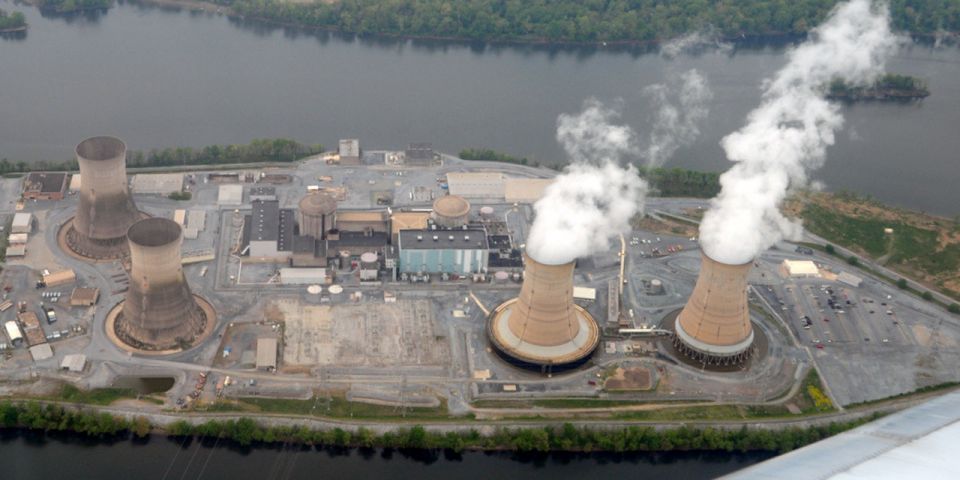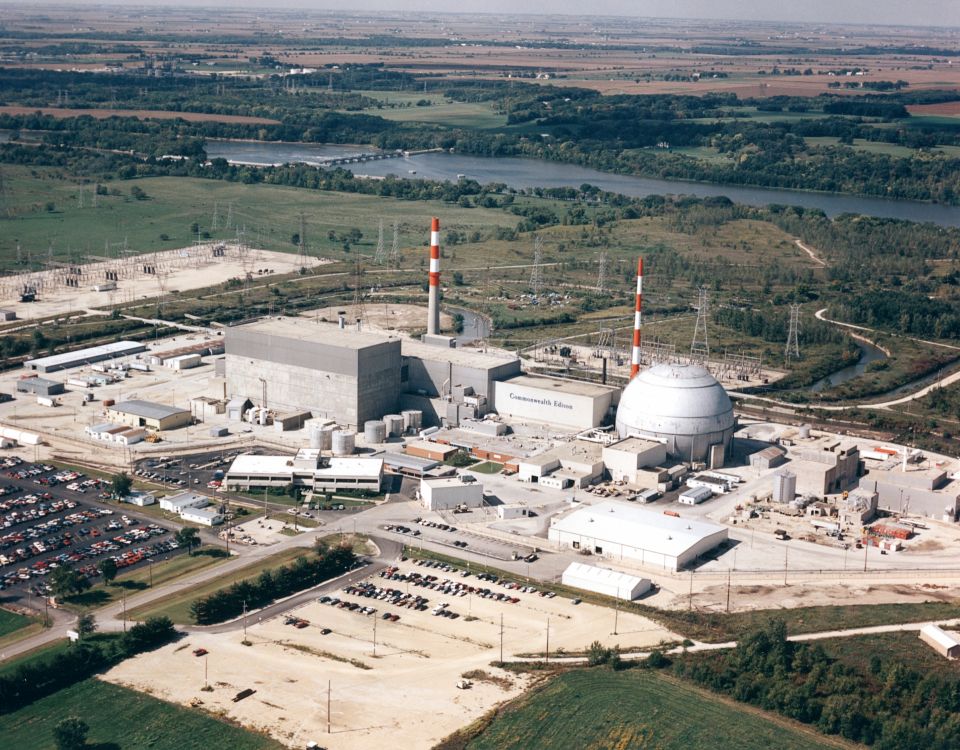A screenshot of Illinois legislators before session from an August 17 video of the Chicago Tonight television program. (Source: YouTube)
Yesterday, a television news program, Chicago Tonight, shined the spotlight on the financial troubles and potential shutdown of two of Illinois’s six nuclear power plants. The host of the show introduced the issue by stating, “Illinois lawmakers may be back in Springfield [the state’s capital] soon for a second extra session [to] strike a deal on a massive energy package.” Readers of Nuclear News might be thinking, “It’s about time!”
Background on the state’s nuclear plants: Exelon announced almost exactly one year ago—on August 27, 2020—that it would prematurely retire the Byron and Dresden plants unless Illinois lawmakers passed legislation to aid the financially troubled facilities. This past spring, Exelon noted that Springfield had to act before the legislative session concluded at the end of May. Negotiations stalled, leaving Illinois in a state of uncertainty. If an energy bill is not passed by Springfield, Byron will shut down permanently on September 13, followed by Dresden in November.
Back to our programming: Chicago Tonight’s coverage of the Byron plant discusses the power produced by the two units at the site, the refueling process, the valuable jobs the plant provides to the region, and the tax revenue the plant provides to the local school district. The report goes on to say that Exelon is asking Illinois ratepayers to subsidize the plants, which unless financial aid is received—and as noted by an independent auditor—will be uneconomic in the short term for Exelon to operate.
Ratepayers are probably shocked to hear that they are on the hook to pay to keep the two power plants operating. However, the subsidies would cost ratepayers less than if Byron and Dresden were to be shut down this year, estimated to be an increase of more than $2 per MWh. What isn’t mentioned in the report is that the state’s carbon emissions would also increase by more than 20 million tons, which is ironic, considering that the bill Springfield is debating is meant to move Illinois toward a decarbonized power grid.
Hopefully the warnings will reach the ears of politicians in Springfield before it’s too late.
